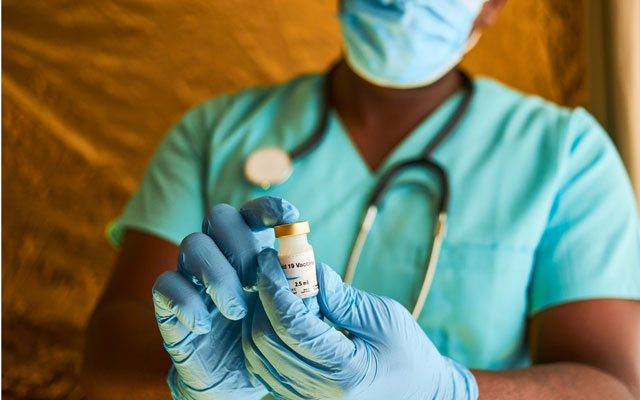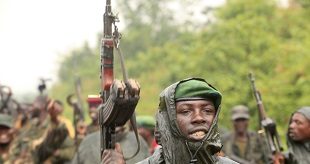
Nairobi, Kenya | THE INDEPENDENT | Like pirates on high seas, developed nations are curtailing essential supply of COVID-19 vaccines to African nations; with the continent receiving less than 2% of the total 773 million worldwide-administered doses of COVID-19 vaccines.
A recent report published in the British Medical Journal (BMJ) estimates that the US has secured 800 million doses of more than six vaccines in development, and it could buy one billion more. The UK has bought 340 million doses, about five times more for every citizen.
On the fringes of a press event held in Kenya, Dr Samuel Kinyanjui: Country Director of Aids Healthcare Foundation, Kenya decried the fact that “nearly 4 million people are most at-risk in Kenya – but only one million vaccine doses are currently available.”
With a majority of African countries being dependent on COVAX, the World Health Organization (WHO) programme that is meant to ensure poor countries have equitable access to vaccines, the hoarding of vaccines by Serum Institute of India now has the African continent in a bind.
They welcomed the G7 dose sharing commitments for 870 million additional doses for equitable access to vaccines to end the acute phase of the pandemic, while acknowledging their support for COVAX as an apt route for providing vaccines to the low-income countries.
“COVAX was well-intentioned, but with wealthy countries buying up enough vaccines to inoculate their citizens as much as five times over, it’s clear that it’s too little, too late. We must learn from our battle against HIV that we cannot wait for years to get lifesaving vaccines and medicines to people who need them most. It’s time that heads of government, global public health organizations, and pharmaceutical companies do all that’s necessary to ‘Vaccinate Our World’ now,” said Dr. Penninah Lutung, the Africa Bureau Chief of AIDS Healthcare Foundation (AHF).
At the virtual event hosted by AHF under its global call-to-action to ‘Vaccinate Our World’, Moreni Masanzu, Regional Chairperson Zimbabwe National Network of People Living with HIV (ZNNP+) reiterated that the global COVID-19 vaccination effort must secure $100 billion from G20 countries in order to produce and provide seven billion vaccine doses worldwide within one year.
“In addition to securing adequate funding, vaccine production must be increased worldwide, which requires access to COVID-19 vaccine patents for the rapid scale-up of production,” AHF South Africa Country Program Director Dr. Nduduzo Dube added. The joint team of scientists and researchers asserted that information sharing and cooperation between nations must also be significantly increased—including removing self-imposed restrictions on vaccine exports for those countries with a surplus.
They urged leaders from the G20 and global financial institutions such as the International Monetary Fund and World Bank to also VOW to step up their contributions immediately. Dr. Dube further cautioned that “If one nation has COVID-19 and no access to vaccines, all countries are in danger.”
The ‘VOW’ call-to-action is about uniting advocates worldwide and shining a spotlight on the immorality of vaccine rationing. While COVAX was established to help lower-income nations – the quantities of vaccines have been inadequate and have forced developing countries in Africa to fend for themselves in securing enough vaccines to protect their citizens.
“Legislators and decision-makers must do more to ensure that all countries have the requisite numbers of vaccines to ‘Vaccinate Our World’ and defeat the pandemic, said Dr. Kinyanjui.
The ‘Vaccinate Our World’ call-to-action kicked off in mid-April with a global digital advocacy campaign and has continued with virtual media events in Bangkok, São Paulo, Johannesburg and now Nairobi.
 The Independent Uganda: You get the Truth we Pay the Price
The Independent Uganda: You get the Truth we Pay the Price


